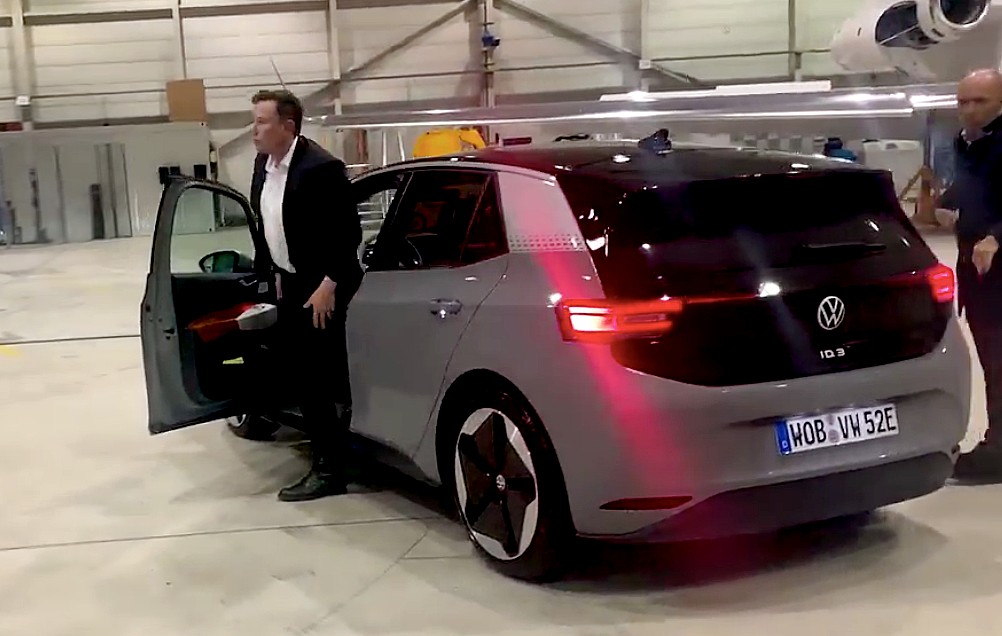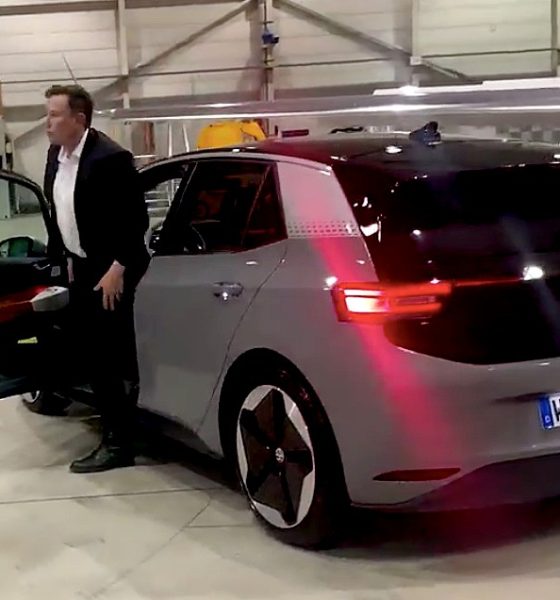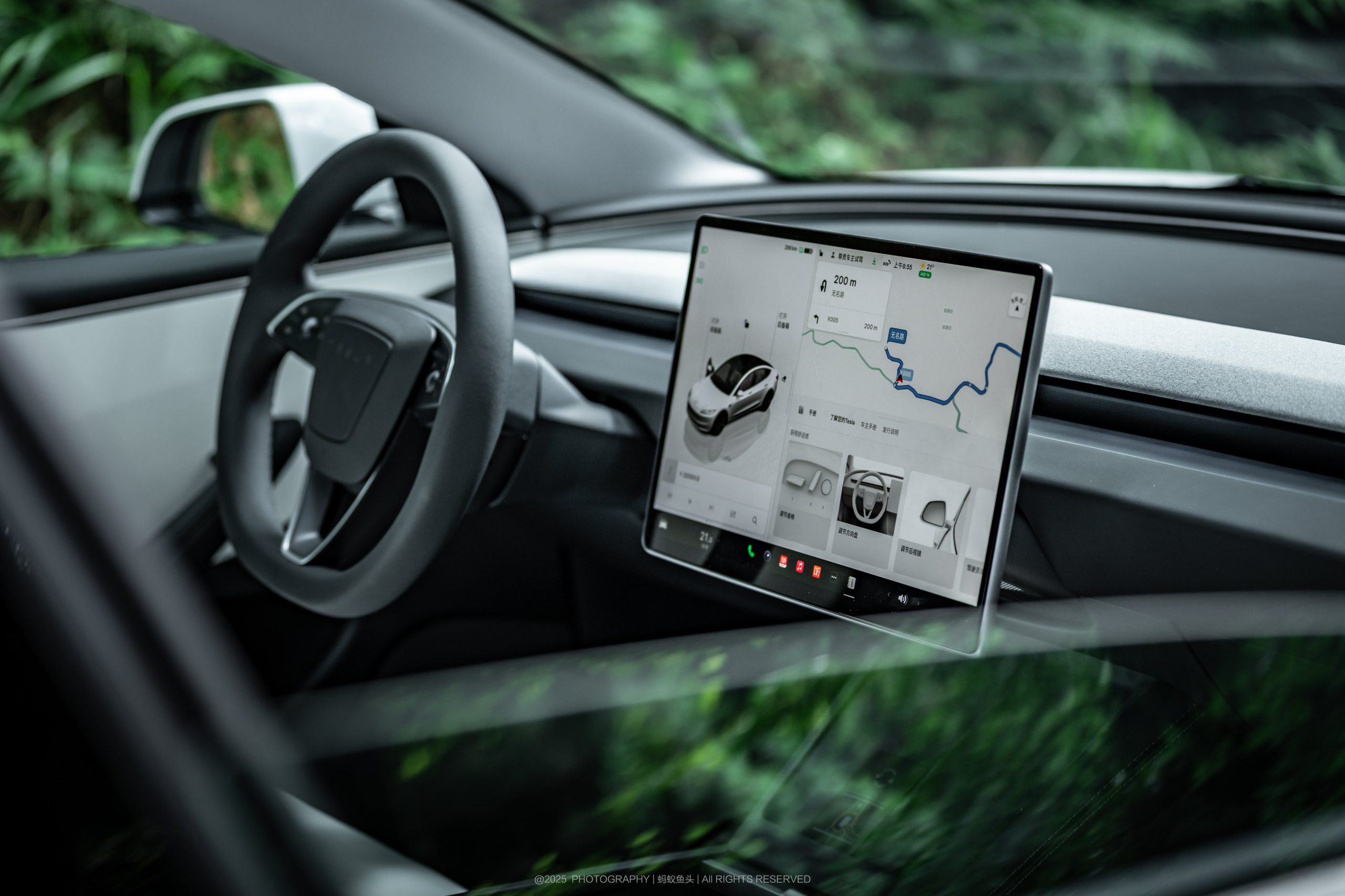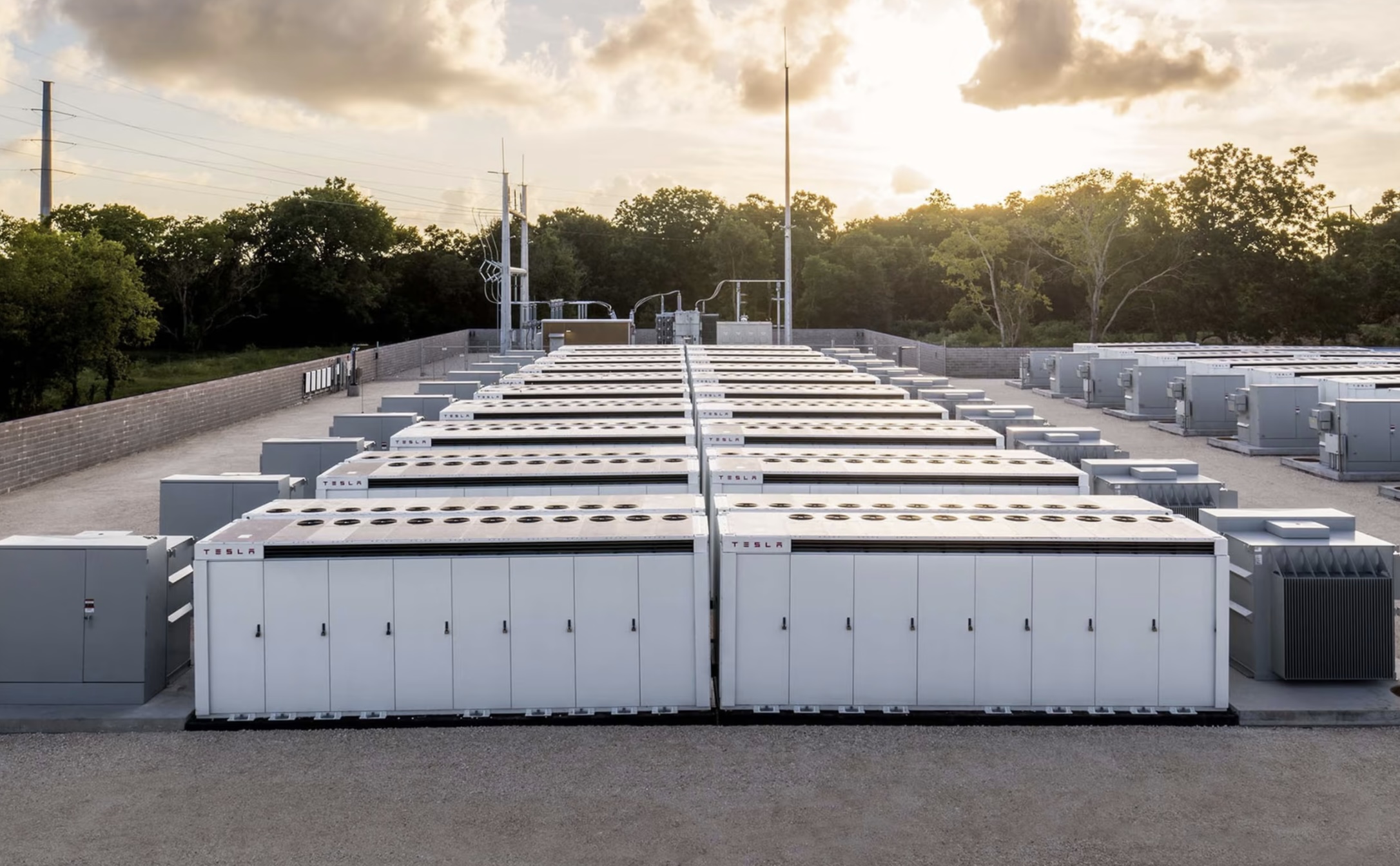

News
Volkswagen gets FUD over its “irritatingly energetic” EV strategy
Volkswagen is serious about its electric vehicle business. This is evident in the German automaker’s efforts to release its first mass-market electric car, the ID.3. The vehicle has received its own fair share of acclaim and criticism since its release, but as Volkswagen continues its EV push with the ID.4 crossover, it appears that the veteran automaker is now dealing with something that Tesla has been battling: anti-electric car FUD.
In a recent article on Cicero Magazine, author Nils Heisterhagen sharply criticized Volkswagen for its “irritatingly energetic” focus on electric vehicles. The author questioned the veteran automaker’s dedication to battery-only vehicles, stating that alternative fuels are a better option, since most cars will have a combustion engine in the future anyway. “Shouldn’t we focus on synthetic fuels when most cars will have combustion engines in the foreseeable future?” the EV critic noted.
The author also criticized Volkswagen for pushing electric cars so much when the development of charging infrastructure for EVs will be extremely expensive. Heisterhagen cited a study from the Handelsblatt Research Institute claiming that 1,000,000 electric cars would require the support of 100,000 charging stations. Considering these challenges, the author argued that it would have been more practical if Volkswagen had focused on alternative fuels like hydrogen instead.
“Building the charging infrastructure is extremely expensive. For Germany alone, we are talking about multi-billion investments by 2030 – and that in addition to the existing filling station infrastructure. So why not use the existing filling station infrastructure – for hydrogen and e-fuels?” Heisterhagen wrote, lamenting the automaker’s resistance to hydrogen and other alternative fuels.
Electric mobility expert Auke Hoekstra has responded to Heisterhagen’s points, defending Volkswagen and setting the record straight about why all-electric vehicles will likely be the reason why the veteran German automaker will thrive in the EV age. According to Hoekstra, the author’s points don’t hold any water since synthetic fuels require a lot of energy and are thus extremely expensive. This is the same for e-fuels and hydrogen.
This is extremely ironic considering that the author was criticizing EVs over the cost of their charging infrastructure. Hoekstra noted that if one were to run the numbers, the massive costs associated with the rollout of an EV charging infrastructure would likely be “pocket change” compared to the costs of developing and transitioning into alternative fuels. With this in mind, the electric mobility expert argued that the aggressive EV push from Volkswagen is a step in the right direction after all.
“I must say that the “irritatingly energetic” (the writer’s words) of the electric drivetrain by Volkswagen is the only reason still see a future for the German car industry,” Hoekstra wrote.
Volkswagen’s EV push has earned the respect of electric car leaders like Tesla CEO Elon Musk, who previously stated that the automaker, under the guiding hand of Herbert Diess, is “doing more than any big carmaker to go electric.” Musk has shown his support for Volkswagen’s electric car efforts, even test-driving the ID.3 with Diess during his recent visit to Germany. A video taken during the test drive showed that the Tesla CEO and the VW executive were on friendly terms, with Musk even joking “What’s the worst that could happen?” while flooring the ID.3.

Elon Musk
Tesla Giga Berlin growth could stall if not “free from external influences”: Elon Musk
The comments were delivered in a pre-recorded video discussion.

Tesla CEO Elon Musk has reportedly warned that future expansion of Gigafactory Berlin could be jeopardized if the site does not remain “free from external influences.”
Musk’s comments were delivered in a pre-recorded video discussion with employees and came at a sensitive moment for the facility, where union representation has been a recurring issue.
According to reports from Handelsblatt and Der Spiegel, citing participants at the event, Musk suggested that if Giga Berlin is no longer “free from external influences,” further expansion would become unlikely. He did not, however, hint that the plant would shut down.
While Musk did not name IG Metall directly, his remarks were widely interpreted as referencing the union, which is currently the largest faction on the works council but does not hold a majority, as noted in an electrive report.
The video conversation was conducted between Musk in Austin and Grünheide plant manager André Thierig, then played back to the workforce in Germany. Works council elections are scheduled for early March, heightening the tension between management and organized labor.
The CEO has previously voiced concerns that stronger union influence could limit Tesla’s operational flexibility and long-term strategy in Germany.
Despite the warning on expansion, Musk praised the Giga Berlin site during the same address, describing it as one of the most advanced factories worldwide and highlighting its cleanliness and team culture.
The discussion also reportedly touched on battery cell production. According to attendees cited in German media, Musk indicated that Tesla has begun ramping cell production at the site. That would mark a notable shift from earlier expectations that large-scale cell manufacturing in Brandenburg would not begin until 2027.
Elon Musk
Tesla Full Self-Driving’s newest behavior is the perfect answer to aggressive cars
According to a recent video, it now appears the suite will automatically pull over if there is a tailgater on your bumper, the most ideal solution for when a driver is riding your bumper.

Tesla Full Self-Driving appears to have a new behavior that is the perfect answer to aggressive drivers.
According to a recent video, it now appears the suite will automatically pull over if there is a tailgater on your bumper, the most ideal solution for when a driver is riding your bumper.
With FSD’s constantly-changing Speed Profiles, it seems as if this solution could help eliminate the need to tinker with driving modes from the person in the driver’s seat. This tends to be one of my biggest complaints from FSD at times.
A video posted on X shows a Tesla on Full Self-Driving pulling over to the shoulder on windy, wet roads after another car seemed to be following it quite aggressively. The car looks to have automatically sensed that the vehicle behind it was in a bit of a hurry, so FSD determined that pulling over and letting it by was the best idea:
Tesla appears to be implementing some sort of feature that will now pull over if someone is tailgating you to let the car by
Really cool feature, definitely get a lot of this from those who think they drive race cars
— TESLARATI (@Teslarati) February 26, 2026
We can see from the clip that there was no human intervention to pull over to the side, as the driver’s hands are stationary and never interfere with the turn signal stalk.
This can be used to override some of the decisions FSD makes, and is a great way to get things back on track if the semi-autonomous functionality tries to do something that is either unneeded or not included in the routing on the in-car Nav.
FSD tends to move over for faster traffic on the interstate when there are multiple lanes. On two-lane highways, it will pass slower cars using the left lane. When faster traffic is behind a Tesla on FSD, the vehicle will move back over to the right lane, the correct behavior in a scenario like this.
Perhaps one of my biggest complaints at times with Full Self-Driving, especially from version to version, is how much tinkering Tesla does with Speed Profiles. One minute, they’re suitable for driving on local roads, the next, they’re either too fast or too slow.
When they are too slow, most of us just shift up into a faster setting, but at times, even that’s not enough, see below:
What has happened to Mad Max?
At one point it was going 32 in a 35. Traffic ahead had pulled away considerably https://t.co/bjKvaMVTNX pic.twitter.com/aaZSWmLu5v
— TESLARATI (@Teslarati) January 24, 2026
There are times when it feels like it would be suitable for the car to just pull over and let the vehicle that is traveling behind pass. This, at least up until this point, it appears, was something that required human intervention.
Now, it looks like Tesla is trying to get FSD to a point where it just knows that it should probably get out of the way.
Elon Musk
Tesla Megapack powers $1.1B AI data center project in Brazil
By integrating Tesla’s Megapack systems, the facility will function not only as a major power consumer but also as a grid-supporting asset.

Tesla’s Megapack battery systems will be deployed as part of a 400MW AI data center campus in Uberlândia, Brazil. The initiative is described as one of Latin America’s largest AI infrastructure projects.
The project is being led by RT-One, which confirmed that the facility will integrate Tesla Megapack battery energy storage systems (BESS) as part of a broader industrial alliance that includes Hitachi Energy, Siemens, ABB, HIMOINSA, and Schneider Electric. The project is backed by more than R$6 billion (approximately $1.1 billion) in private capital.
According to RT-One, the data center is designed to operate on 100% renewable energy while also reinforcing regional grid stability.
“Brazil generates abundant energy, particularly from renewable sources such as solar and wind. However, high renewable penetration can create grid stability challenges,” RT-One President Fernando Palamone noted in a post on LinkedIn. “Managing this imbalance is one of the country’s growing infrastructure priorities.”
By integrating Tesla’s Megapack systems, the facility will function not only as a major power consumer but also as a grid-supporting asset.
“The facility will be capable of absorbing excess electricity when supply is high and providing stabilization services when the grid requires additional support. This approach enhances resilience, improves reliability, and contributes to a more efficient use of renewable generation,” Palamone added.
The model mirrors approaches used in energy-intensive regions such as California and Texas, where large battery systems help manage fluctuations tied to renewable energy generation.
The RT-One President recently visited Tesla’s Megafactory in Lathrop, California, where Megapacks are produced, as part of establishing the partnership. He thanked the Tesla team, including Marcel Dall Pai, Nicholas Reale, and Sean Jones, for supporting the collaboration in his LinkedIn post.








